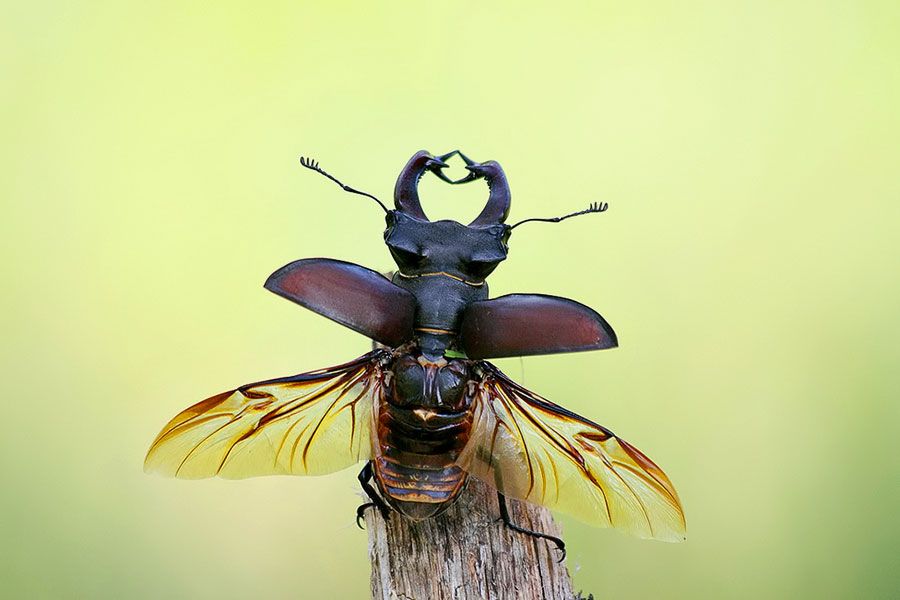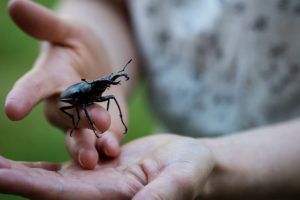European stag beetle monitoring

Working towards a guideline for practitioners on stag beetle conservation in urbanised areas and gardens with a network of 14 countries
The problem
The ‘European stag beetle monitoring’ initiative (www.stagbeetlemonitoring.org) was set up in 2016, with help from PTES. European stag beetles are elusive and saproxylic – this means they rely on dead wood to survive and this is what the larvae feed on whilst they live and grow for up to seven years. It’s a really difficult species to study because it has such a short activity period above ground, once the larvae have developed into adult beetles. Additionally, they are crepuscular (active at dusk and dawn) which only adds to the complexity of finding them.

The solution
Despite these difficulties, our team has managed to create a simple standardised transect monitoring. This allows us to collect sufficient data using volunteers (citizen science). Because we were starting from scratch in most countries, and because some of these populations of beetles might be particularly patchy, we decided to be ambitious and create a network of volunteers across the full range of the species. This type of international network has many advantages. We will be able to detect small population declines more quickly and we can spread the costs of developing and implementing a monitoring network. We will therefore be able to use comparable methods between countries, which gives us very sound results. This network currently includes 14 countries.
PTES provided funds for an intern to work on this project for the first two years. Now we need to develop the work further PTES is supporting Natalia to take this project to the next stage. We aim to improve communication across the network, update the website and produce a second digital newsletter. Part of the second stage will involve analysing the data we already have and using it to collate all current knowledge on stag beetle conservation in urbanised areas and gardens to make an inspiring guideline for practitioners on this topic.
This project is possible thanks to our generous donors. Can you help us continue?
